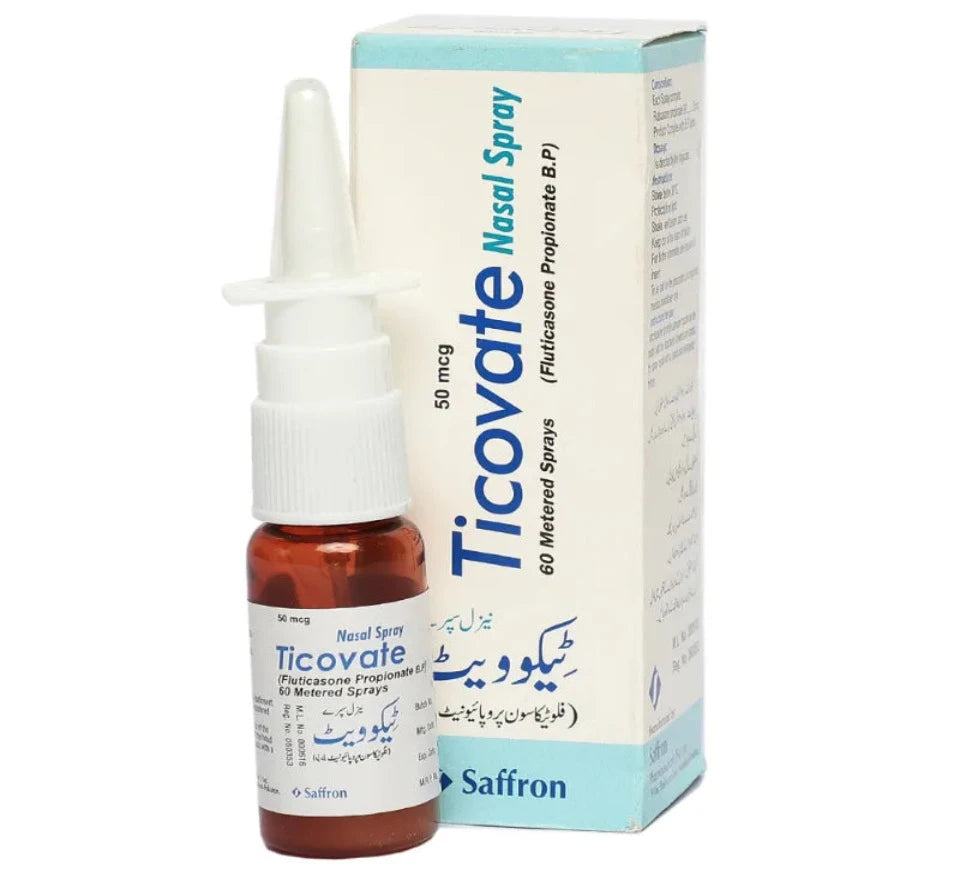Description
Description
SPECIFICATION
50Mcg
GENERIC
Fluticasone Propionate
About
The exact mechanism of action of fluticasone is not known; however, it stimulates glucocorticoid receptors in humans that produces a potent anti-inflammatory response.
Indication
It is used to prevent and treat: • Inflammation in the lining of your nose (rhinitis) due to seasonal allergies, such as Hayfever. • Inflammation in the lining of your nose (rhinitis) due to year round (perennial) allergies, such as animal allergies..
Side Effects
Infections and infestations Very common:Candidiasis of mouth and throat Candidiasis of the mouth and throat (thrush) occurs in some patients. Such patients may find it helpful to rinse out their mouth with water after using the inhaler. Symptomatic candidiasis can be treated with topical anti-fungal therapy whilst still continuing with this medicine. Rare: Oesophageal candidiasis Immune system disorders Hypersensitivity reactions with the following manifestations have been reported: Uncommon: Cutaneous hypersensitivity reactions Very rare: Angioedema (mainly facial and oropharyngeal oedema), respiratory symptoms (dyspnoea and/or bronchospasm) and anaphylactic reactions Endocrine disorders Possible systemic effects include : Very rare: Cushing’s syndrome, Cushingoid features, adrenal suppression, growth retardation, decreased bone mineral density, cataract and glaucoma Metabolism and nutrition disorders Very rare: Hyperglycaemia Psychiatric disorders Very rare: Anxiety, sleep disorders and behavioural changes, including hyperactivity and irritability (predominantly in children) Respiratory, thoracic and mediastinal disorders : Common: Hoarseness In some patients inhaled fluticasone propionate may cause hoarseness. It may be helpful to rinse out the mouth with water immediately after inhalation Very rare: Paradoxical bronchospasm . Skin and subcutaneous tissue disorders Common: Contusions
Drug Interactions
Ritonavir , erythromycin , ketoconazole
When not to Use
Do not use if: You are allergic to fluticasone propionate or any of the other ingredients of this medicine.
Precaution
Increasing use of short-acting inhaled ß2-agonists to control asthma symptoms indicates deterioration of asthma control. Under these conditions, the patient's therapy plan should be reassessed. Sudden and progressive deterioration in asthma control is potentially life-threatening and consideration should be given to increasing corticosteroid dosage. In patients considered at risk, daily peak flow monitoring may be instituted.

